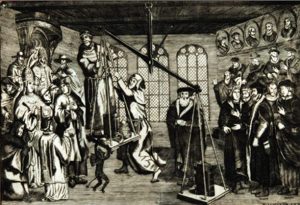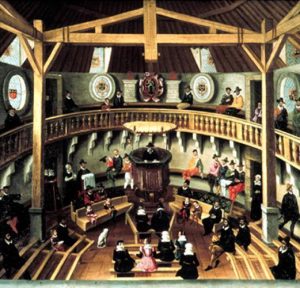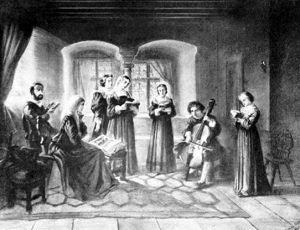Theological debates which led to a reorganization of the Churches
Theological debates led to several different trends within the Reform Movement :
- The Reform of ecclesiastical authority : there were now two trends : Lutheran and Reformed
- The radical Reform Movement
- Reformism with the Catholic counter-reform.
Important differences came to light concerning man’s relationship to God, salvation, the forgiveness of sins, the way in which the Bible was understood and interpreted.
The kingdom of France remained predominantly catholic. However, the Reform Movement continued to develop in spite of religious persecution : the reformed Churches were set up from 1555 onwards. They were inspired by Calvin’s ideas, established a confession of faith and church discipline, so their communities were well organized on a local, provincial and national level.
The act of worship in the temple used Calvin’s liturgy, the central part of the service was the pastor’s sermon. Holy Communion was only celebrated four times a year, with both wine and bread being distributed. People also held services in their homes.
Protestants stood out from other believers in two different ways : both in their direct relationship to God, excluding the intermediary of saints or clergy and also in the way they led their private lives.





